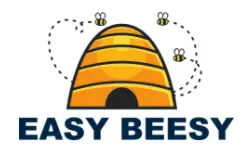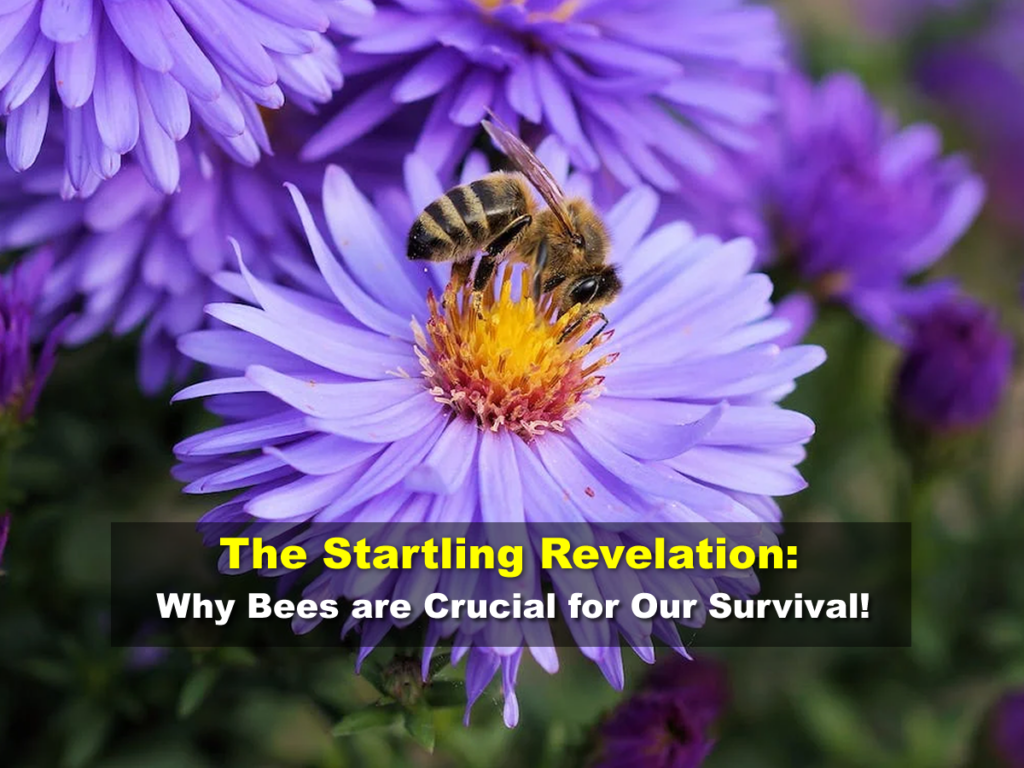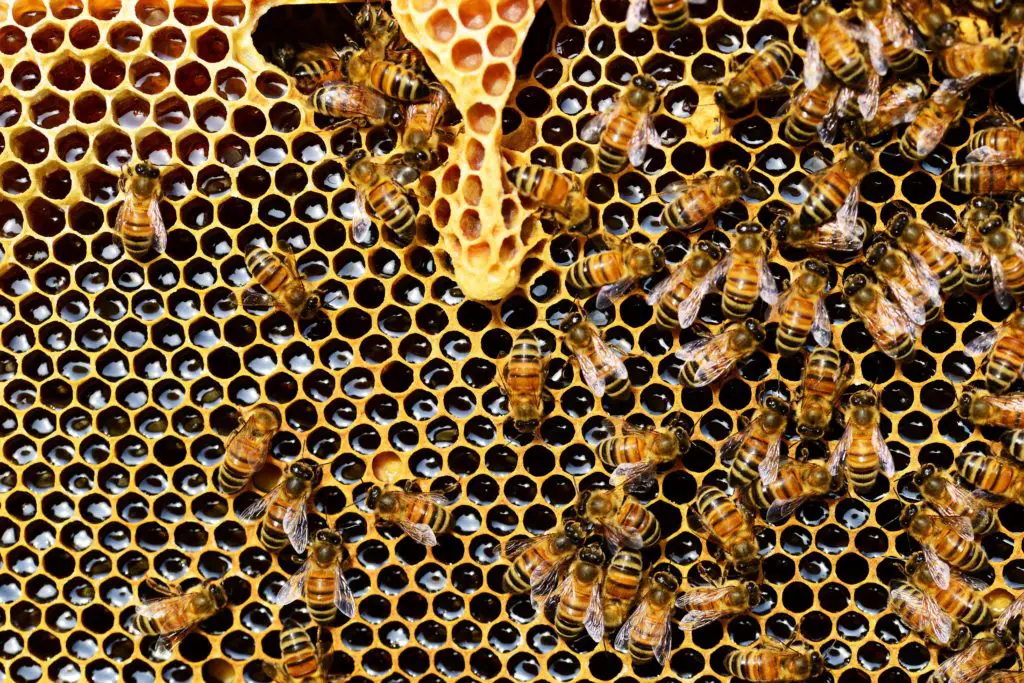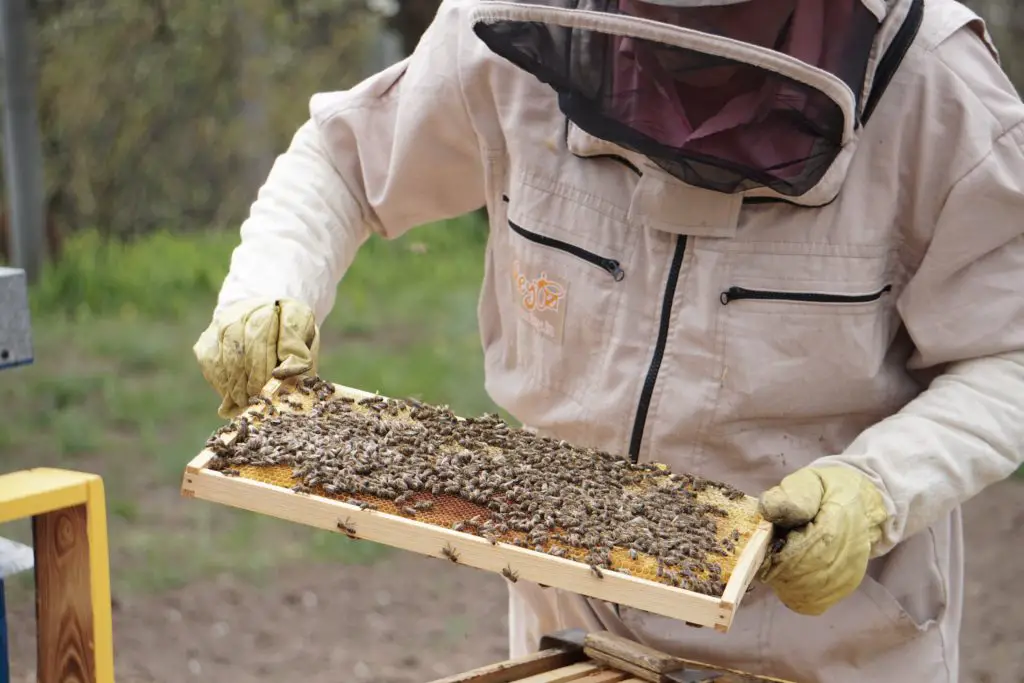Affiliate Disclaimer - As an Amazon Associate I earn from qualifying purchases.
It supports the website. So, Thank you
Bees are a creature that most of us don’t pay a lot of attention to. They buzz around in the spring and summer and unless they bother us, we just let them go about their business.
But these winged friends are a lot more critical to the ecosystem than most people realize. I’ve spoken to many people that wonder why bees are important and I’d like to explain why this is.
Bees are pollinators and this is one of the main reasons that they’re essential. Did you know that as many as 75% of human crops are pollinated by bees? Without them, many animal species would struggle for food – and that includes us!
This isn’t the only reason we should protect our bee populations. These small insects are important in many other ways.
Table of Contents
What Would Happen If Bees Went Extinct?
If you’ve been researching the importance of bees then I imagine you’d have been bombarded by information on saving the bees. As humans, it is our responsibility to look after these creatures to ensure their survival as there are several threats to bees.
Now, contrary to popular belief, humans would not die out if bees went extinct. However, we would struggle immensely.
As many as one in three mouthfuls of the food you eat relies on bee pollination so you can imagine how your diet would be affected. And it isn’t just the crops we grow for consumption, bees are also responsible for pollinating up to 90% of all wild plants. Other animals feed on these plants and of course, humans kill these animals for food.
What’s more, if you’re a coffee lover, the extinction of bees would seriously affect your chances of having a morning brew. You see, the coffee plant is only open for pollination for a few days each year. If there were no bees to pollinate these plants and no other insects came by in the meantime, coffee supplies would diminish drastically. Even where we could produce it, the cost would rise significantly.
Other Reasons Bees Are Important
Knowing that bees pollinate so many human crops, it probably won’t come as much of a surprise that they’re also important for the economy. While it is difficult to determine the exact amount made by bee pollination every year, it’s thought that more than $15 billion of agricultural profit can be attributed to bee-pollinated crops annually!
On top of this, bees are important for biodiversity. Just think about the number of flowering plants that are able to reproduce thanks to bee pollination. Without them, there would not be anywhere near the same number of plant species.
In some parts of the world, beekeeping is big business but without bees, these people would not be able to earn a living. In fact, this industry has become so profitable that there are now even charities working with people in rural areas to assist them to become self-sufficient beekeepers.
There has been some research to show that bees are able to sniff out dangerous landmines and other explosives so could be used in their detection and removal.
What Are The Threats To Bees?
While not officially on the IUCN Red List as endangered or even under threat, there is a risk that bees could go extinct if humans don’t buck up their ideas. The main threats to these little critters come from humans. By understanding why this is happening, we can start to look at ways of protecting our bee populations.
Climate Change
Humans are at fault when it comes to climate change and there’s no denying it. While we’re obviously concerned about the effects this is having on humans, we also have to consider how climate change affects our wildlife, especially when it comes to bees.
One of the main issues with climate change for bees is that it causes extremes in the weather. This has a direct impact on the behavior of bees causing their nesting and breeding to turn chaotic.
Habitat Loss
A major problem for bees is that they simply don’t have adequate habitat. Humans are constantly developing the land by building houses, businesses, and performing invasive farming techniques, all of which are taking away the natural habitat of bees.
One serious issue faced by bees is the removal of trees. Did you know that many bees will use a hollow tree to nest in? But with the amount of deforestation that’s going on, more and more bees find themselves without a home.
Use of Chemicals
I can’t deny that using chemicals in agriculture and in domestic gardening is one of the easiest ways to deal with problems. However, it’s not good for bees and could result in their decline.
In one UK study, it was seen that there were more than ten different chemicals in a single soil sample meaning the bees are exposed to a cocktail of chemicals. Where possible, we should be focusing on using organic methods.
Disease, Parasites, and Non-Native Insects
One of the greatest threats to bees is parasites, in particular, the varroa mite. These mites attach themselves to the backs of honey bees and transmit viruses and diseases which will eventually kill the bee.
What’s more, North America has seen an influx of non-native species such as the Asian hornet. These cause disruption to the local ecosystem in many ways but one of the biggest problems is that they feed on honey bees.
How Can I Help To Protect Bees?
Now that you understand why bees are so important, I would imagine you’d want to do your bit to protect them. It’s easy to believe that, as individuals, there isn’t much we can do but this couldn’t be further from the truth.
Imagine if every human on the planet did a very tiny amount to help save the bees; the overall effect would be dramatic. So, with that in mind, here are some things you can do to help the bees in your local area.
- Grow native, bee-friendly flowers in your garden. It doesn’t matter whether you have room for a few small pots or a vast area of fragrant wildflowers; bees will be grateful for anything. There are certain types of flowers that attract bees including lavender, foxglove, hollyhock, potentilla, catmint, honeysuckle, crocus, and primrose to name a few.
- Create an area of shelter in your yard for bees. You might install a bug hotel or simply section off an area of the garden with some log piles, rocks and long grass where bees can hide out.
- Avoid using chemicals in your garden. There are lots of natural alternatives to things like chemical pesticides and herbicides that are bee-friendly.
- Get a beehive! If you are interested in trying a new hobby then you could try raising your own colony of bees. Keep in mind that while beekeeping won’t take a massive amount of time, it does come with a degree of responsibility. I have lots of information throughout this website on getting started with beekeeping so be sure to check it out!
Final Thoughts
Bees might be a common sight during the summer months but these hard-working creatures face a lot of threats. You might wonder why it matters and why bees are important but the harsh reality is that your life would be seriously affected without bees.
Honey bees in particular are responsible for the pollination of as many as 75% of human crops and up to 90% of wild plants and flowers. Without them, we would see a drastic reduction in the number of available foods, less biodiversity and far fewer agricultural profits.
Therefore, it’s our job to protect bees and provide them with everything they need to thrive. This includes shelter, flowers for collecting nectar and pollen and treating our gardens organically as opposed to using chemicals. If we all do a little bit, the positive effect could be enormous!




